Provisional figures for summer exam entries have been released today by qualifications watchdog Ofqual.
In usual Schools Week-style, we’ve been through the report and picked out the key points:
Pupils still mostly plumping for AS-levels – despite A-level overhaul
This is really interesting … The A-level system got a significant shake-up last September. From now on the traditional AS-level are decoupled from A-levels – in favour of a linear A-level.
New reformed AS subjects – available for the first time this summer in 13 subjects (most of the core subjects) – do not count towards a student’s final A-level grade.
These changes are causing havoc in the system – not least for universities that have had to overhaul their admissions policies as a result.
And this release is the first set of figures that show how pupils are reacting. The answer looks like there’s not much difference.
The number of students taking AS levels fell by just 14 per cent.
Despite all this upheaval – this suggests there hasn’t really been much change and pupils are still choosing AS subjects.
More Year 10 pupils shunning early GCSE entries
Pupils in year 10 and below taking their GCSEs has dropped by 13 per cent – from 344,000 in 2015, to 300,000 in 2016. This continues the trend since the government changed the rules meaning from 2014 only a pupil’s first result in a subject counts towards a school’s results.
Morgan said the figures show the government’s intervention has “ended the treadmill of revision and re-sits”.
GCSE subjects: the increases and decreases
Those subjects with the largest increases:
And those with the largest decreases:
The continued rise of the IGCSE
The number of pupils taking the international GCSE (officially known as level 1 and 2 certifications) has risen by 8 per cent, up from 457,000 to 493,000.
It appears schools are continuing to go for these GCSEs, despite some of them being excluded from performance league tables.
They qualifications have also been dogged by claims they are “easier” – something Schools Week has investigated in much more detail here.
Here’s the top five IGCSE increases:
And top five decreases:
EBacc on the rise?
Figures for Year 11 GCSE entries for the EBacc subjects German and French decreased by 8 per cent.
That’s not particularly good news for the government, which has pledged that 90 per cent of pupils will study the full slate of EBacc subjects. However other modern languages has risen by 9 per cent – one of the highest increases by subject-level.
Schools Week has already revealed lots of modern foreign language problems, chiefly a lack of pupils entering and lack of teachers to teach them.
And the good news for Morgan and Gibb is that entries are up in the majority of EBacc subjects – English literature (2%), biology (5%), chemistry (6%), physics (5%), geography (8%), history (7%), Spanish (3%) and science (up a whopping 22% – although slightly influenced by wider changes to science qualifications).
Computing is also rocketing again – up by 87% for year 11 pupils to 61,000. This will probably continue as the government has now scrapped ICT.
GCSE resitters
New rules were introduced in the 2014-15 school year meaning pupils that did not achieve a C in maths and English and wanted to go on to post-16 study had to resit those subjects.
Unsurprisingly, this has resulted in the post year 11 entry for GCSE English and English language rising by 33 per cent (from 92,000 in 2015, to 123,000 in 2016) and 35 per cent in maths (130,000 in 2015, to 175,000 in 2016).
What Nicky Morgan had to say
“Today’s figures are a vindication of our reforms to ensure pupils study for qualifications in subjects that boost their life chances and open the door to future success. 
“Thanks to the steps that we have taken to end the treadmill of revision and re-sits, there are thousands fewer entries to GCSE in Year 10. This means pupils are instead taking exams when they are ready, with the best possible chance of achieving the best grades.
“What’s more, GCSE entries are up in a range of Ebacc subjects, computing and each of the sciences – essential subjects for young people to prosper in the 21st century global economy.
“There are already 1.4 million more young people in good or outstanding schools than in 2010, and today’s figures provide further evidence that our efforts to raise standards are working.”



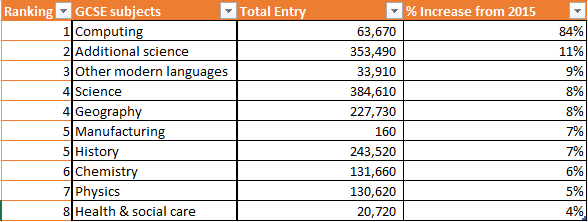
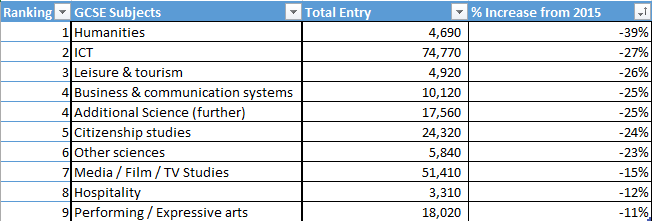
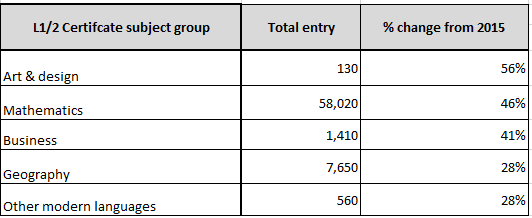
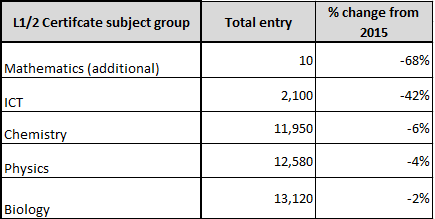
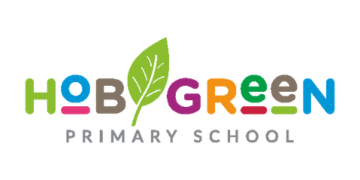
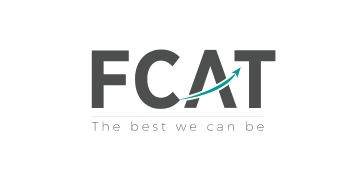



Students have not ‘chosen’ AS level. Schools have decided to run the new A levels with students taking AS at the end of the first year. The students will then have to resit that side of the content again in Year 13